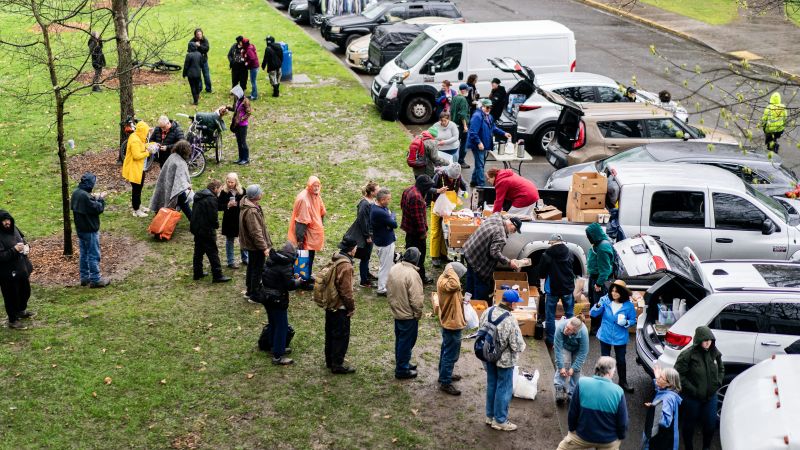Helen Cruz, a 49-year-old woman living in Grants Pass, Oregon, made a park her home in order to be close to the houses she cleans for a living but cannot afford for herself. This decision placed her in the middle of a national debate on whether cities can punish homeless people in response to a spike in homelessness. The issue has reached the Supreme Court, where justices will hear arguments on whether ticketing people living on the streets is considered “cruel and unusual” punishment that violates the Eighth Amendment. The case is significant as it challenges how cities respond to the increasing problem of homelessness and encampments across the nation, with many advocating for building shelters and affordable housing instead of criminalizing the population.
Homelessness in the United States has been on the rise, with a 12% increase between 2022 and 2023 according to a Department of Housing and Urban Development report. On any given night, more than 650,000 people in the U.S. are unhoused, with roughly 40% lacking adequate shelter. Grants Pass responded to their homelessness issue by intensifying enforcement of anti-camping ordinances that prohibit sleeping in public with “bedding,” including sleeping bags or bundled-up clothing. Critics argue that the only people affected by these ordinances are the homeless, and the debate about whether the ordinances target a class of people or specific conduct will be a key factor in the Supreme Court case.
City officials believe that homelessness is a public safety and health concern rather than a constitutional matter for the courts to decide. They argue that the Eighth Amendment’s prohibition on “cruel and unusual” punishment was not intended for tickets issued by police but for more severe forms of punishment. The Ninth US Circuit Court of Appeals ruled against the city, stating that they could not enforce their ordinances against homeless people for the mere act of sleeping outside with rudimentary protection from the elements when there are no other options available. The case has led to tension between government leaders, including California Governor Gavin Newsom, who believes people experiencing homelessness should not be criminalized but warns against a broad ruling that could limit the government’s ability to deal with encampments.
For people like Helen Cruz, ticketing has been a major issue, with fines of $295 per violation that increase to over $500 if not paid. Cruz has received multiple tickets and struggled to pay them off even after moving out of the park. There are consequences for violating these ordinances, such as being ordered to avoid a park for 30 days or facing jail time. Despite the challenges, Cruz refuses to leave Grants Pass and sees the ticketing as harassment and an attempt to push those experiencing homelessness out of the city. The Supreme Court case has brought attention to the complexities of addressing homelessness, with advocates calling for a more compassionate and effective approach to supporting those in need.


